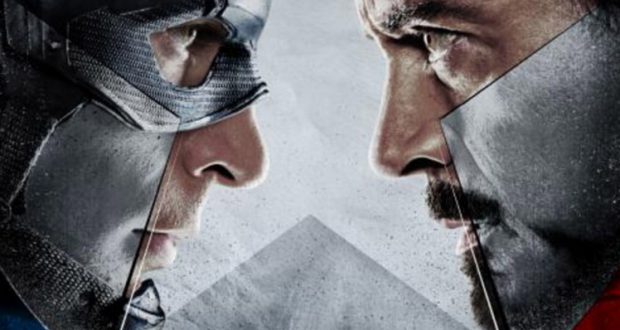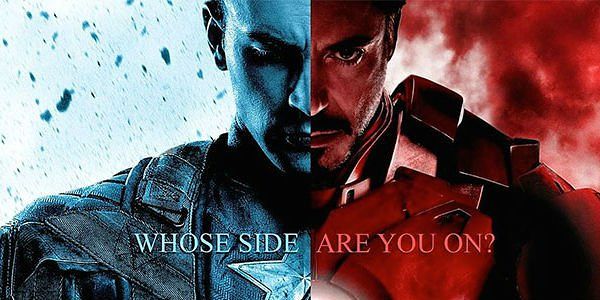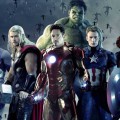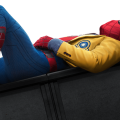This film had arguably the easiest act to follow after the utter crap-pile that was Batman vs Superman. Critics and fans alike were crying out for a better superhero film to wash away the bad aftertaste. And, thankfully, Civil War delivered. It is thematically coherent, lightens the mood every now and then with character-driven humour, and actually makes the massive ensemble cast work to its favour (something which Avengers 2 did not). Then, of course, you have the Chris Evans factor – or pretty much anyone else in the cast – he is far more charismatic and interesting on-screen than Henry Cavill could ever be.
If we sign these accords, it takes away our right to choose.
After yet another mission causes more collateral damage than anyone would have liked, the governments of the world band together to form a controlling body over the Avengers. But our superhero pals can’t agree on whether or not to sign it – politics, after all, can never really come out of the equation when leaders make decisions. Cap (Chris Evans) believes they need to keep their freedom, never being beholden to any politicians’ whims. Tony Stark (Robert Downey Jr), believes otherwise.
When leaders and superheroes come together to sign the accords, someone sets off a bomb and everyone thinks Bucky (Sebastian Stan) is to blame – well, everyone but Captain America. Trying to outwit and outrun the villain who framed Bucky, Cap and friends must face down against the Avengers who now answer to the United Nations.
Captain, while a great many people see you as a hero, there are some who prefer the word vigilante.
There is so much that really worked in this film. The balance of politics, drama, intense action, and humour was perfect. We finally have an incarnation of Spider-Man (played by the excellent Tom Holland) that does justice to the character. Black Panther had a strong introduction to mainstream film viewers (though I don’t particularly find the character interesting, he had a good story arc). The relationships between characters are nuanced and interesting, with each of them having distinct personalities and motivations for their actions. Overall, Civil War is a very worthy addition to the Marvel Cinematic Universe, with plenty to recommend itself for many re-watches… But it wasn’t perfect.
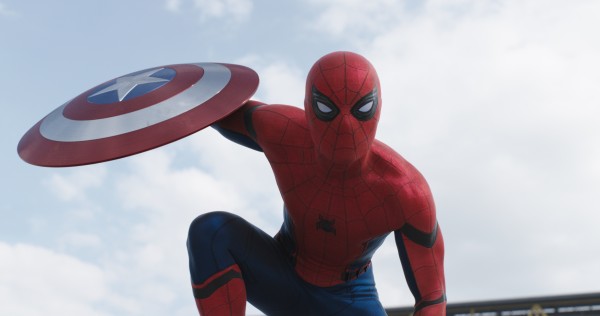 For the most part, the film keeps on the straight and narrow, focusing on a core thematic narrative. But it starts to lose its way towards the end when the ‘accords’ no longer seem to matter and it becomes more about the behind-the-scenes manipulations of a nothing villain. The villain’s plan is so utterly preposterous it hardly seems worth including – sure, they needed something to kick-start the rift from disagreement to war, but the story they chose for it was weak.
For the most part, the film keeps on the straight and narrow, focusing on a core thematic narrative. But it starts to lose its way towards the end when the ‘accords’ no longer seem to matter and it becomes more about the behind-the-scenes manipulations of a nothing villain. The villain’s plan is so utterly preposterous it hardly seems worth including – sure, they needed something to kick-start the rift from disagreement to war, but the story they chose for it was weak.
Tony mostly acts like a spoiled child throughout, which works for his character, but he is also a very clever man (something that gets a little lost along with all the tantrums). So while some of his emotional responses make sense, we are left feeling like he has no plan for the future and wondering how/why he isn’t in prison. His arc felt underdeveloped. Sure, he is meant to be playing second fiddle to Cap (it is his film, after all), but that doesn’t mean he needs to be such a puppet for the narrative.
Sometimes I wanna punch you in your perfect teeth.
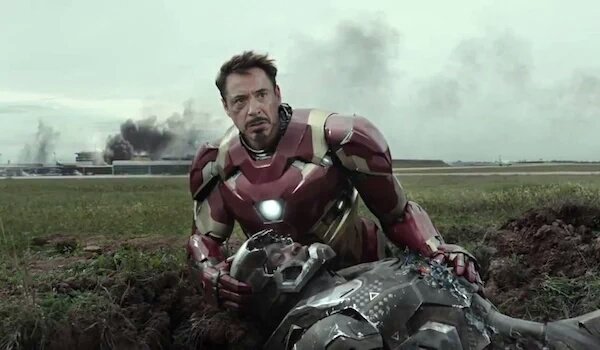 There are two key themes underpinning Civil War from beginning to end, a welcome coherence to a film genre that often strays too far into the nonsensical. These themes were: 1) vengeance never solves anything and 2) doing good will sometimes have unintended negative consequences, but that doesn’t mean you should stop trying. While that might sound a little Machiavellian, hear me out…
There are two key themes underpinning Civil War from beginning to end, a welcome coherence to a film genre that often strays too far into the nonsensical. These themes were: 1) vengeance never solves anything and 2) doing good will sometimes have unintended negative consequences, but that doesn’t mean you should stop trying. While that might sound a little Machiavellian, hear me out…
Throughout the film, we have instances of people feeling angry or hurt by the Avengers because a loved one was killed as a byproduct of their fighting. But that’s what happens in war, civilians always get caught in the crossfire. Does that mean that they shouldn’t have tried to stop Ultron? Or Loki? Of course not! Think about how much worse it would have been if no one fought back at all. Family and friends of those who do suffer will naturally grieve and potentially misplace their anger, but that should never stop anyone from never trying to stop the bad things happening in the first place. This is something that is also covered in Batman vs Superman, when the people turn against Superman after his careless destruction of Metropolis – only, in Civil War, we don’t simply have our superheroes sulking. They try to take positive actions towards fixing things.
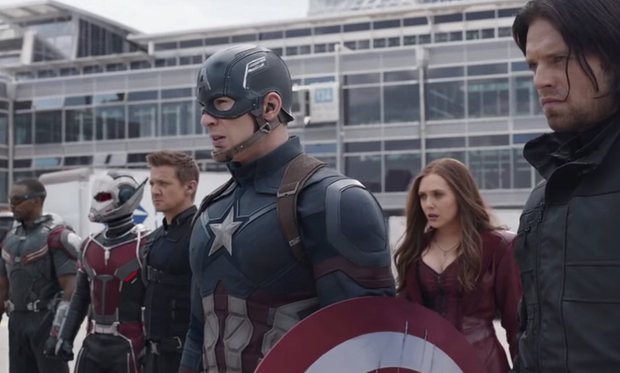 Captain America: Civil War can further be compared to Batman vs Superman in that Captain America and Superman are fairly similar characters. One might be an alien and the other originally very much an ordinary human, but they both wear the ‘goody two shoes’ flag proudly for their respective comics empires. I’ve never been a fan of Superman, his holier than thou attitude, and his, quite frankly, utterly dull storylines. But Captain America manages to avoid these same issues, despite being a boy scout. How? Cap tends to deal with murkier ethical problems than his DC counterpart, he admits when he’s wrong and is absolutely the master of his own destiny. Superman, on the other hand, always feels too reactionary.
Captain America: Civil War can further be compared to Batman vs Superman in that Captain America and Superman are fairly similar characters. One might be an alien and the other originally very much an ordinary human, but they both wear the ‘goody two shoes’ flag proudly for their respective comics empires. I’ve never been a fan of Superman, his holier than thou attitude, and his, quite frankly, utterly dull storylines. But Captain America manages to avoid these same issues, despite being a boy scout. How? Cap tends to deal with murkier ethical problems than his DC counterpart, he admits when he’s wrong and is absolutely the master of his own destiny. Superman, on the other hand, always feels too reactionary.
Verdict: Great fun, with plenty of golden moments. Tom Holland is easily the standout of the film, bringing us an absolutely brilliant depiction of Spider-Man (finally!). However, there are a few problems amongst the gems to make this just a good film, not an amazing one.
 Pop Verse Pop Culture Universe
Pop Verse Pop Culture Universe
